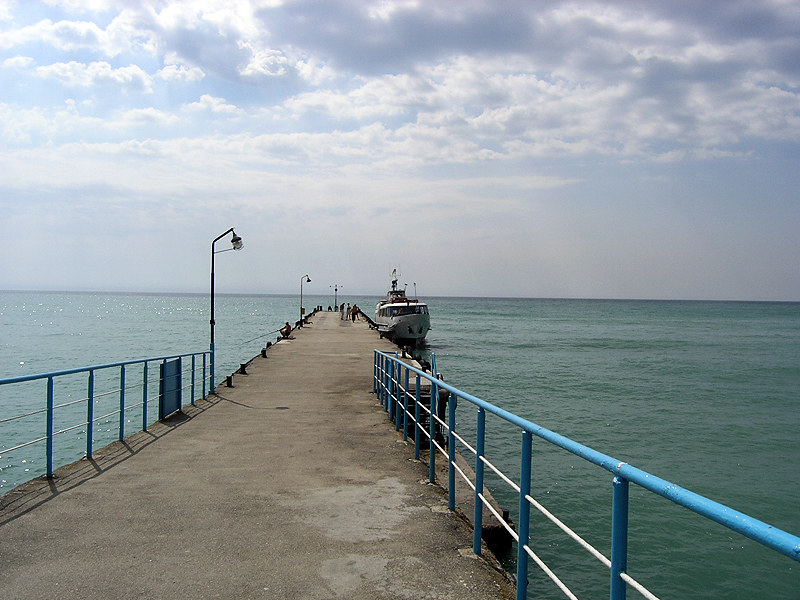Ten years on from Crimea's annexation
With the illusions of a reconquest of the peninsula gone, Kiev is wondering about the possible scenarios, amidst the allies' uncertainties about support to the bitter end. Zelenskyj needs victory to confirm himself as the leader of an exhausted and devastated country, while Chief of Staff Zalužnyj paints a more realistic picture and would like to limit himself to defending the rest of the territory.
Kiev (AsiaNews) - As spring approaches, the war between Russia and Ukraine reaches a decisive phase, after the inevitable winter "freeze".
Last year some senior Ukrainian officials - starting with the head of counterintelligence of the Ministry of Defense, Kirill Budanov - had predicted the reconquest of Crimea by 2023, the key to Ukraine's recovery, but the plan did not materialize, and we are now in the days in which we remember the tenth anniversary of the annexation of the peninsula, invaded by Russian soldiers and solemnly reunited with the "mother country" through a plebiscite referendum, carried out under the fire of Moscow's army.
These crucial points are creating more and more tension at the top of Kiev's political and military forces, with President Volodymyr Zelenskyj intending to replace the Chief of Staff Valeryj Zalužnyj, whose popularity makes him the main internal opponent of the head of state.
Zelenskyj needs victory to confirm himself as leader of an exhausted and devastated country, Zalužnyj paints a more realistic picture, considering the greater strength of his opponent, and proposes to limit himself to the defense of the rest of the territory.
Experts are also divided on the assessments and forecasts, collected in a dossier published by the Ukrainian site Zaborona Media which presents the different possible scenarios in reference to Crimea, whose control nevertheless appears decisive for the fate of the war.
The first approach, so far without any result, is that of diplomatic negotiation, which was attempted by the Ukrainians at the request of the Westerners, when in 2014 the "green men" of Russia had settled in the Crimean cities without any obstacle.
After the 2022 invasion, the diplomatic path appears completely impassable, due to the explicit desire of both parties to achieve victory on the field. The Ukrainians therefore concentrated on the reconquest of Crimea by land, trying to force the Russian defenses in various points, but the 160 kilometers that divide the peninsula from Ukrainian territory proved almost impossible to cross, also due to the multi-level arrangement of the Russian defenses.
Both for the negotiations and for the counteroffensive, Ukraine would need enormous human and technical resources, which currently seem decidedly insufficient.
Some propose a third way, the "blockade of Crimea", its siege and isolation, a hypothesis supported mainly by President Zelenskyj, to "degrade Russia's war potential". But this is also why long-range weapons are needed in ever-increasing quantities.
The fourth hypothesis therefore remains, that of a "prolonged freeze", above all due to the insufficiency of Western aid, which prevents any type of attack or siege on Crimea, not even if the long-awaited F-16 planes manage to reach the hands of the Ukrainians.
The impression is that instead the initiative in the hands of the Russians is strengthening, with advances on the territory of the other annexed and disputed regions.
In fact, 2024 opened with continuous Russian bombing on the left bank of the Dnipro in the Kherson region, in what at the end of 2022 appeared to be the hope of a real Ukrainian counteroffensive.
The use of F-16s could be able to counter the assaults of Moscow's air force, but the result would still be null and void on both sides. The Russians in turn threaten to resume their advance until the "complete reconquest of Ukraine", as ex-president Medvedev repeats with his characteristic overexcited tones, but these declarations also appear rather an element of pre-election emphasis of the presidential race.
The new consecration of the Tsar will take place on March 17, on the eve of the tenth anniversary of the annexation of Crimea and the proclamation "Crimea is ours!".
On that occasion Putin will therefore be able to boast of victorious glory, and Ukraine will have to decide on its future, caught between the emphasis of the invader and the uncertainties of its allies.
Photo: Flickr /Elena Pleskevich







.png)










